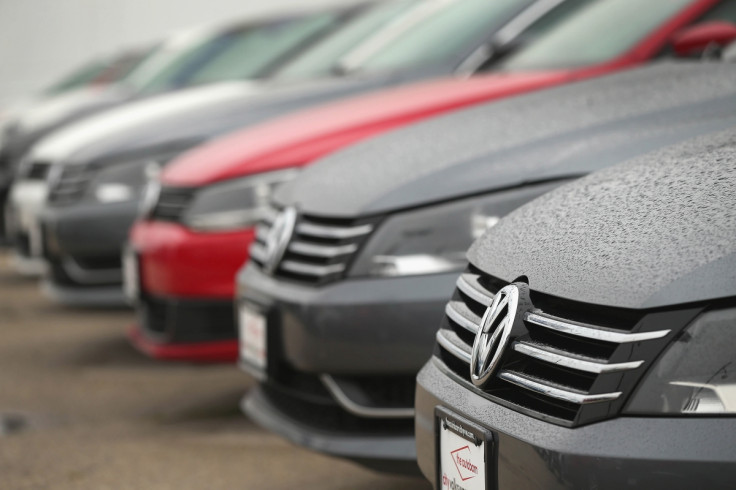VW emissions scandal: Carmaker prepares to recall up to 11 million vehicles for refits

Volkswagen is drawing up a comprehensive plan to undertake the recall of up to 11 million vehicles fitted with a defeat device for emission tests in a proposed refit package that could cost the company more than $6.5bn. The comprehensive plan will be submitted to regulators and VW customers will be contacted "in the next few days," newly appointed chief executive Matthias Muller told a meeting of the company's top 1,000 managers at its headquarters in Wolfsburg, Germany.
The comprehensive plan includes technical solutions and measures for both VW and its other group brands affected by the emissions defeat device. The recall will be one of the biggest ever seen in the automotive industry, beating even Toyota's 10 million vehicle recall in 2010 over a fault with its accelerator pedal.
The affected vehicles include 5 million VW-branded cars, including the sixth generation Golf, the seventh generation Passat and the first generation Tiguan. The others include 2.1 million Audis, 1.2 million Skodas, 700,000 Seat and 1.8 million light commercial vehicles.
German authorities have given VW until 7 October to come up with a plan for the 11 million cars worldwide that the carmaker has acknowledged were fitted with the software, The Guardian reports. This is also believed to be the first time that VW has admitted that the scandal not only involves cars but also commercial vehicles.
The company did not say how the planned refit will make the affected cars comply with emissions regulations worldwide, nor how this may affect the vehicles' mileage or fuel efficiency, Reuters reports.
Websites to be set up for every affected country
In a statement, VW said that websites will be set up for every country affected to keep its customers up to date on what needs to be done to have their vehicles refitted. It also assured customers that "all vehicles are safe and roadworthy."
VW has hired a US law firm, Jones Day to undertake an internal investigation into VW's diesel cars fitted with software that detects when a vehicle is tested for emissions and manipulates its performance.
Muller, the former Porsche boss, told staff that the company was "facing the severest test in its history [and] a long trudge and a lot of hard work. We will only be able to make progress in steps and there will be setbacks." Muller warned that the scandal has to be cleaned up "ruthlessly".
Spain's Industry Ministry said that VW had agreed to pay back fuel efficiency subsidies on vehicles that had broken its rules. The €1,000 euros subsidy for energy-efficient car purchases will be sought from the manufacturer and not the car buyer.
Separately, Muller said VW's core division, VW will be given more autonomy, similar to that currently enjoyed by Audi and Porsche, as it struggles with high-fixed costs and low profit margins, Reuters reports. The news agency said the executive committee of VW's supervisory board is expected to meet today (30 September) to discuss the progress in its internal probe.
Concerns over impact on Germany's economy
The scandal, seen as an embarrassment for Germany which has for years held up VW as a model of its engineering prowess, is now a serious concern over potential damage to the country's economy. The German car industry employs more than 750,000 people and is a major source of export income, Reuters notes.
Economy Minister Sigmar Gabriel however has dismissed such concerns. He told reporters that he was not worried about damage to the economy due to VW's problems, "at least, not if we deal with it sensibly." There must be no "soft pedalling, no obfuscation and no covering-up," by Volkswagen, he told reporters.
© Copyright IBTimes 2025. All rights reserved.






















